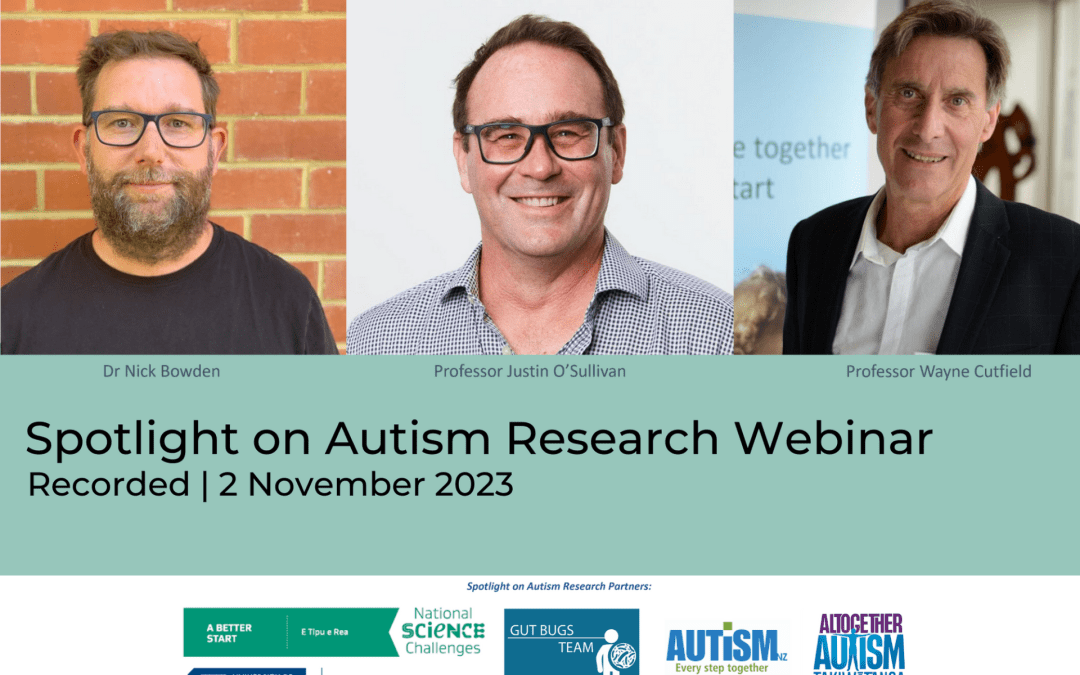Gut Bugs in Autism Study
Is gut microbiome transfer an effective therapy option for improving gut issues for autistic people to improve wellbeing? To find out more about this interesting study the team at the Liggins Institute here in Auckland are currently running, and how to take part click here.
To view the webinar held on 2 November 2023 Spotlight on Autism Research, click here
Dr Nick Bowden speaks about his research on the impact of health and education-based supports for autistic young people. (Pictured below left). He will present the findings of study showing that while Autistic students are suspended and stood down at higher rates than non-autistic students, those with high need education-based funding support (ORS), have substantially lower rates of suspensions. His talk will also highlight the potential for more future research into this area to better support the autism community.
Nick is a Research Fellow at the Department of Women’s and Children’s Health within the Dunedin School of Medicine at the University of Otago.
Director of the Liggins Institute Professor Justin O’Sullivan (pictured below middle) will talks about the very latest of what we know about the genetics of autism through his team’s research. Researchers have known that genes contribute to autism since the 1970’s. More recently scientists have been able to use new technologies to examine the role that these genes play more closely in autism.
Justin has a PhD in molecular microbiology from the University of Otago and joined the University of Auckland Waipapa Taumata Rau as a Senior Research Fellow at the Liggins Institute in 2012. He was recently appointed Director of the Liggins Institute in July 2023.
Professor Wayne Cutfield (pictured above right) takes you through the latest research we have on the gut microbiome and the benefits of gut microbiome transfer for those with autism and also suffering with gut issues. The gut microbiome refers to the collection of microorganisms including bacteria that naturally live in our gut. These bacteria help us to digest and extract nutrients from food. Gut microbiome transfer is an emerging therapy for microbiome restoration that involves the transfer of gut microbiome from healthy donors to people with a disordered gut microbiome. Gut microbiome transfer is currently being tested as a treatment in a range of conditions.
Wayne is a Professor of paediatric endocrinology at the Liggins Institute, a practicing paediatric endocrinologist at Starship Children’s Hospital as well as the Director of A Better Start, one of 11 government funded National Science Challenges


